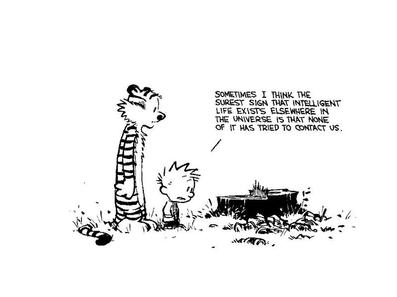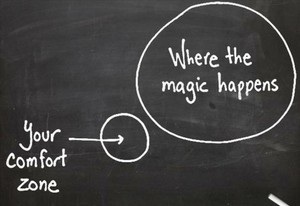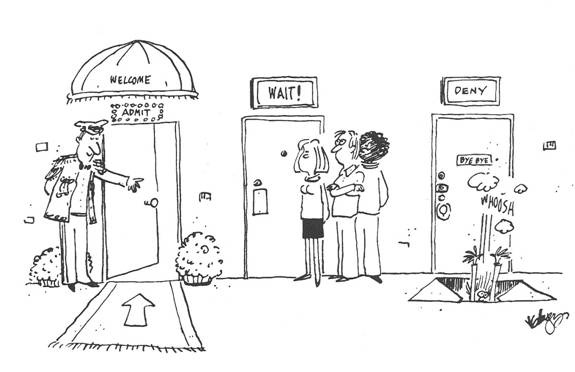You know Calvin and Hobbes? I spent a lot of time with those two when I was younger. I wasn't really a comics person otherwise, but something about Calvin's enthusiasm, occasionally tempered by his wry assessments of life's injustices, resonated with 10-year-old me.
However, it was only recently I learned more about the comic strip's creator, Bill Watterson. See, Watterson was fettering away his days in advertising, hating every minute. He wanted to do work he enjoyed, as well as something that allowed him to be at home more with his family.
So what did he do?
He quit his job to work on comics full time. Eventually Calvin and Hobbes emerged, was picked up by newspapers across the county, and Watterson was famous.
Over and over he clashed with his syndicate over the issue of merchandising. Watterson insisted the integrity of Calvin and Hobbes be preserved by avoiding the commercialization of his characters. He won. When he felt the material was played out, he stopped writing.
In other words, here was a person who designed his own dream job, and rejected offers of more money and fame in favor of protecting his work,
I can't improve or add to Watterson's excellent advice below; I only want to encourage anyone who is feeling conflicted about what they are doing and what they wish they were doing to read this over. And then read it again.
However, it was only recently I learned more about the comic strip's creator, Bill Watterson. See, Watterson was fettering away his days in advertising, hating every minute. He wanted to do work he enjoyed, as well as something that allowed him to be at home more with his family.
So what did he do?
He quit his job to work on comics full time. Eventually Calvin and Hobbes emerged, was picked up by newspapers across the county, and Watterson was famous.
Over and over he clashed with his syndicate over the issue of merchandising. Watterson insisted the integrity of Calvin and Hobbes be preserved by avoiding the commercialization of his characters. He won. When he felt the material was played out, he stopped writing.
In other words, here was a person who designed his own dream job, and rejected offers of more money and fame in favor of protecting his work,
I can't improve or add to Watterson's excellent advice below; I only want to encourage anyone who is feeling conflicted about what they are doing and what they wish they were doing to read this over. And then read it again.
Creating a life that reflects your values and satisfies your soul is a rare achievement. In a culture that relentlessly promotes avarice and excess as the good life, a person happy doing his own work is usually considered an eccentric, if not a subversive. Ambition is only understood if it's to rise to the top of some imaginary ladder of success. Someone who takes an undemanding job because it affords him the time to pursue other interests and activities is considered a flake. A person who abandons a career in order to stay home and raise children is considered not to be living up to his potential-as if a job title and salary are the sole measure of human worth.
You'll be told in a hundred ways, some subtle and some not, to keep climbing, and never be satisfied with where you are, who you are, and what you're doing. There are a million ways to sell yourself out, and I guarantee you'll hear about them.
To invent your own life's meaning is not easy, but it's still allowed, and I think you'll be happier for the trouble.
-Bill Watterson























